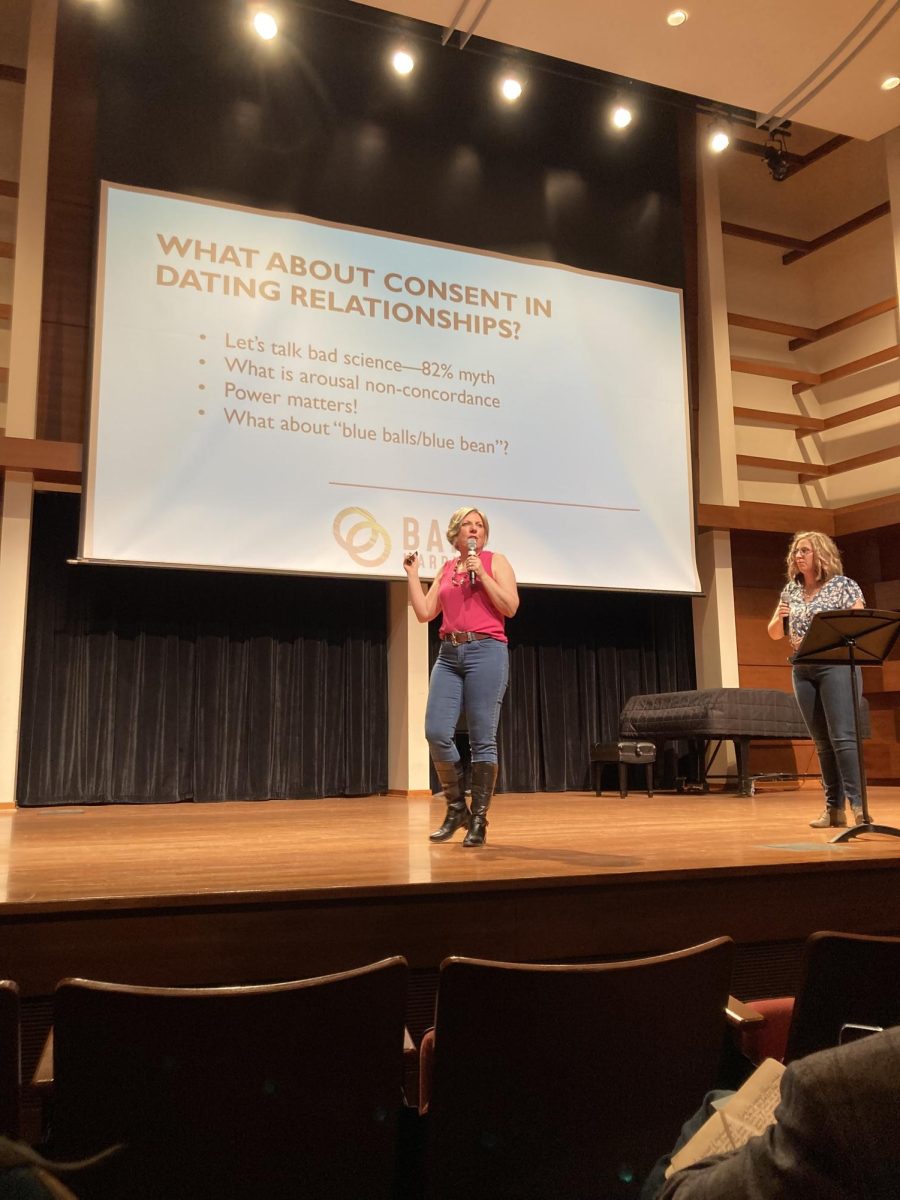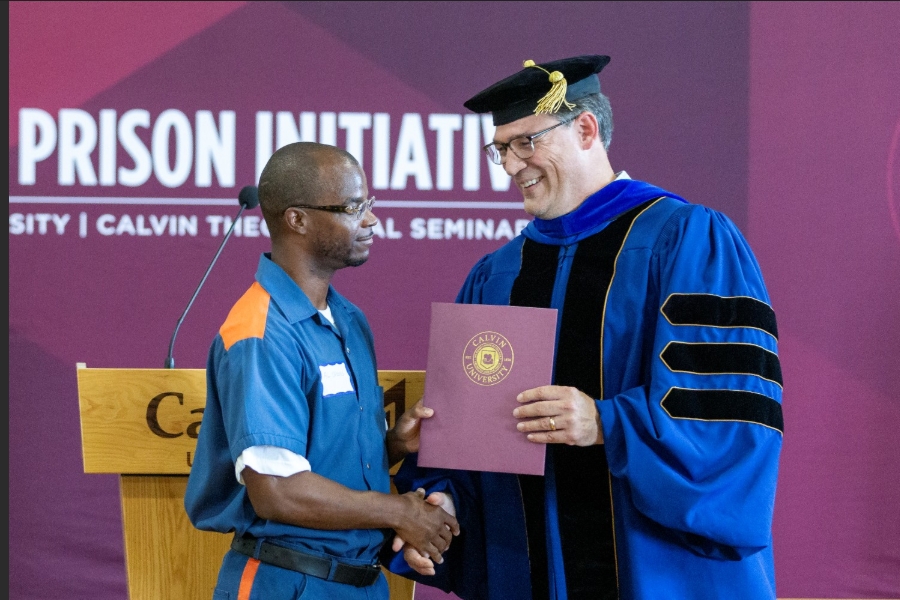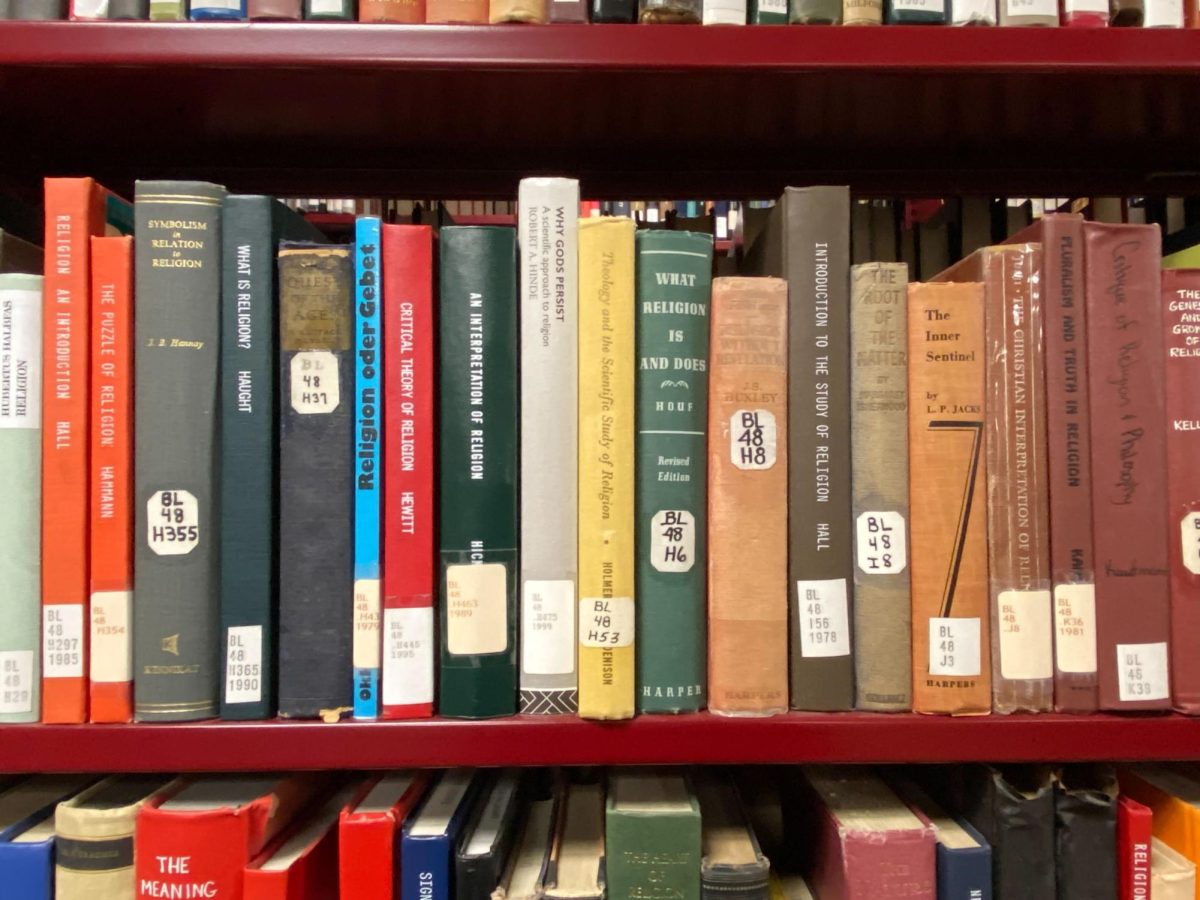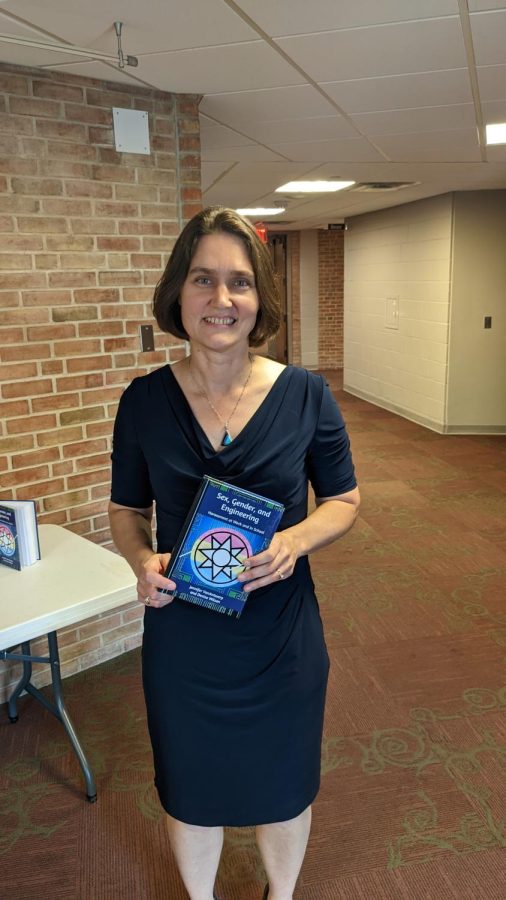Sheila Wray Gregoire and Rebecca Gregoire Lindenbach –– Christian co-authors of “The Great Sex Rescue” and “She Deserves Better,” among other books –– headed two lectures and a panel on Calvin’s campus between March 13 and March 14.
Their books use data from surveys they conducted, among other research, to understand and provide education about sex and the impact evangelical purity culture has had on a generation of men and women.
The authors gave two lectures and a panel. During the first lecture called “The Sex Ed You Should’ve Had,” Gregoire and Lindenbach expanded beyond what is typically seen in school sex education — and highlighted a number of safe sex and pregnancy prevention methods, including tracking methods, barrier methods, permanent methods and non-methods.
“Knowledge is not dangerous, it is your friend,” Lindenbach said, and therefore there was little- to- no emphasis on the ‘just don’t do it’ mentality during their lecture.
Kai Salinas, a junior at Calvin University, found the talk helpful because in Salinas’s educational experience, “I feel like we focused more on drugs than we did on sex ed.”
According to Gregoire and Lindenbach, their research showed that people not educated in sex not only are more likely to stay in an abusive relationship but will also have a lower self-esteem.
The second lecture, called “You Deserved Better: How Teachings Around Sex, Dating, & Marriage Hurt a Generation, and How We Can Heal,” focused on survey data and research about the history and impacts of purity culture in a wider society. The two used examples from popular marriage, dating and relationship books written by Christians to exhibit the harmful rhetoric around both masculinity and femininity, what it means to be a man or woman and the very early hyper-sexualization of women’s bodies.
For junior Gwendolyn Fulkerson, who attended this second talk, the most interesting information was about the history of purity culture. “I wasn’t aware of how recent that was, in the late 70s early 80s.”
Fulkerson enjoyed the lecture and said that despite the fact there was not much practical advice for individuals to move forward into a reconstruction, she appreciated the fact that Lindenbach and Gregoire addressed the openness of the path forward. “We’re just now getting to the deconstruction part and so the reconstruction is unknown and we’re all trying to figure that out together,” Fulkerson said, “which was a little disheartening, but also maybe hopeful.”
These two lectures, plus the panel “Ask (Wo)me(N) Anything” are a continuation of Calvin’s sexuality and gender awareness (SAGA) club’s “Let’s Talk About. . .” series, according to the Coordinator for Student Support and Sexuality Programming Jodi VanWingerden.
The series is intended to start conversations and provide students with helpful and accurate information regarding little-talked-about subjects, according to VanWingerden.
“People get uncomfortable when the word sex comes up. Let’s just normalize conversations about these things so that there aren’t people walking around thinking, ‘There must be something wrong with me because I’m experiencing this thing that nobody’s ever talked about,’” VanWingerden told Chimes. She hopes that by starting these conversations, students might be unafraid to ask questions.
Gregoire and Lindenbach’s talks contain some similarities to Zach Wagner’s visit to Calvin as a speaker in the same series this fall. During this visit, Wagner discussed the topic of toxic masculinity through lectures, a panel and a classroom talk.
VanWingerden has been in her position as coordinator for student support and sexuality programming for a year and a half, and as she’s spent time in the role, she wants to think carefully about “those messages the Church puts out in the world” and “the way that Christians represent Jesus to the world.”
VanWingerden sees the visit of Gregoire and Lindenbach as helpful in that mission because it will promote embracing difficult or uncomfortable conversations about topics like sexuality and gender, sex and healthy relationships and boundaries.









